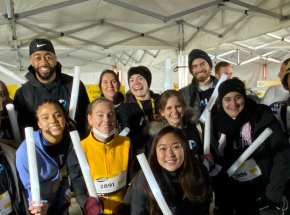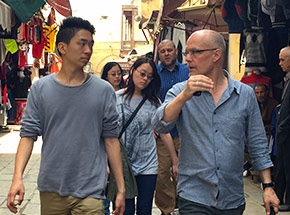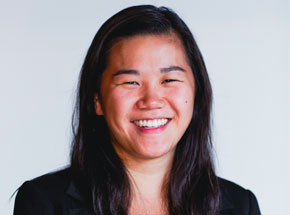- About AUP
- History of AUP
- Mission & Core Values
- Vision and Leadership
- AUP Recognition
- Alumni Success
- Campus Development
- Arts at AUP
- Policies & Guidelines
- Academics
- Undergraduate
- Graduate Programs
- MA in Diplomacy and International Law
- MA in Global Communications
- MSc in Human Rights and Data Science
- MA in International Affairs
- MA in International Affairs, Conflict Resolution, and Civil Society Development
- MSc in International Management
- MSc in Strategic Brand Management
- Find Your Thesis Advisor
- Previous Programs
- Cultural Program
- Faculty
- Summer School
- Research Centers
- The Center for Critical Democracy Studies
- Upcoming Events
- Research Projects
- Fellows’ Publications
- Publishing
- Curriculum
- Community
- Partnerships
- Visiting Scholars
- CCDS Highlights
- Atelier de Théorie Politique – Paris
- Critical Theory 101: Future Directions and New Challenges
- Martti Koskenniemi on “The Law of International Society: A Road not Taken”
- Academic Freedom Symposium
- Tocqueville Colloque 2023
- Violent Turns Conference
- Degenerations of Democracy
- DEMOS21 Inaugural Event
- What Demos for the 21st Century?
- The Paris Centennial Conference
- Justice Stephen Breyer
- Civic Jazz - The Launch of the Center
- Past Events
- FR
- The Center for Writers and Translators
- The George and Irina Schaeffer Center for the Study of Genocide, Human Rights and Conflict Prevention
- The Joy and Edward Frieman Environmental Science Center
- The Center for Media, Communication & Global Change
- The Center for Critical Democracy Studies
- Departments
- Academic Resources
- Academic Affairs
- Academic Calendar
- Academic Resource Center
- Library
- Registrar's Office
- Teaching and Learning Center
- Accessibility & Accommodation Services
- AI@AUP: A Campus-Level Initiative
- Quai D'Orsay Learning Commons
- Paris as Classroom
- ACE
- Admissions
- Student Life
- Campus
- Student Leadership & Involvement
- Paris
- Support Services
- Student Life Help Desk
- Student Accounting Services
- Student Immigration Services
- Student Grievance Procedure
- Diversity and Inclusion
- Health & Well-being
- Digital Student Handbook
- News
- Events
- AUP Giving
- Housing Offer for 2025-2026
- IT Services
- Alumni
- About AUP
- History of AUP
- Mission & Core Values
- Vision and Leadership
- AUP Recognition
- Alumni Success
- Campus Development
- Arts at AUP
- Policies & Guidelines
- Academics
- Undergraduate
- Graduate Programs
- MA in Diplomacy and International Law
- MA in Global Communications
- MSc in Human Rights and Data Science
- MA in International Affairs
- MA in International Affairs, Conflict Resolution, and Civil Society Development
- MSc in International Management
- MSc in Strategic Brand Management
- Find Your Thesis Advisor
- Previous Programs
- Cultural Program
- Faculty
- Summer School
- Research Centers
- The Center for Critical Democracy Studies
- Upcoming Events
- Research Projects
- Fellows’ Publications
- Publishing
- Curriculum
- Community
- Partnerships
- Visiting Scholars
- CCDS Highlights
- Atelier de Théorie Politique – Paris
- Critical Theory 101: Future Directions and New Challenges
- Martti Koskenniemi on “The Law of International Society: A Road not Taken”
- Academic Freedom Symposium
- Tocqueville Colloque 2023
- Violent Turns Conference
- Degenerations of Democracy
- DEMOS21 Inaugural Event
- What Demos for the 21st Century?
- The Paris Centennial Conference
- Justice Stephen Breyer
- Civic Jazz - The Launch of the Center
- Past Events
- FR
- The Center for Writers and Translators
- The George and Irina Schaeffer Center for the Study of Genocide, Human Rights and Conflict Prevention
- The Joy and Edward Frieman Environmental Science Center
- The Center for Media, Communication & Global Change
- The Center for Critical Democracy Studies
- Departments
- Academic Resources
- Academic Affairs
- Academic Calendar
- Academic Resource Center
- Library
- Registrar's Office
- Teaching and Learning Center
- Accessibility & Accommodation Services
- AI@AUP: A Campus-Level Initiative
- Quai D'Orsay Learning Commons
- Paris as Classroom
- ACE
- Admissions
- Student Life
- Campus
- Student Leadership & Involvement
- Paris
- Support Services
- Student Life Help Desk
- Student Accounting Services
- Student Immigration Services
- Student Grievance Procedure
- Diversity and Inclusion
- Health & Well-being
- Digital Student Handbook
- News
- Events
- AUP Giving
- Housing Offer for 2025-2026
- IT Services
- Alumni
Study Trip
Istanbul
From the Byzantine and Ottoman Empires to Modern-Day Turkey
Students studying either linguistics or the history and politics of the Middle East are invited to attend a three-day study trip to Istanbul to immerse themselves in the cultural and linguistic history of the Byzantine and Ottoman Empires in this 2,000-year-old meeting point of Christianity and Islam. Students engage with and reflect upon how a historical mix of identities and languages continues to shape the politics and culture of modern-day Turkey, while also enjoying a wide range of cultural activities.
“Study trips are an excellent opportunity to engage with different people, cultures and languages,” says Professor Ziad Majed, who teaches the trip’s historical and political aspects. Going beyond the classroom allows students to see the many concepts, ideas and events described in class in context while experiencing cultural, human and political diversity. Students learn to explore unfamiliar concepts, to ask new questions and to be curious and interested in new experiences. For example, students attended the trip during Ramadan, meaning they were able to witness the local community breaking their fast with an iftar meal.
church, museum and mosque. “Istanbul is a unique place, and its historical legacy is challenging and stimulating to explore,” says Majed. “But the trip is not just about the history of the city; it’s also about its present and future.” Students benefit from immersion in a cosmopolitan city and an active regional economic and political center. The city’s imperial history has brought together people from different places and cultures, deeply impacting its modern-day makeup.
The city’s long history of migration also makes it an important linguistic center. Alongside Turkish speakers, Istanbul hosts speakers of Arabic, Kurdish, Armenian, Ladino and, due to more recent migration, Ukrainian and Russian. Students attended a museum exhibit on migration and saw testimonies from migrants written in various languages. “It allowed students to appreciate that just because you see Arabic script, it doesn’t mean you are reading the Arabic language,” explains Rebekah Rast, Professor of French Studies and Modern Languages. “Getting out of Paris and out of your comfort zone, and going to a place that’s different, allows you to learn and grow so much more.”
Tash Karasick is a first-year planning to major in French and linguistics. She attended the trip as it was tied to Professor Rast’s course on migration, refugees and cultural integration. She appreciated the opportunities to speak to Turkish people about their views on migration and to see how the topic impacted their daily lives. “It gave me a whole new perspective on my coursework,” she says. Tash also enjoyed the opportunity to get to know her professors better outside of the classroom and to benefit from their expertise in context: “They really emphasize how to be a citizen of the world and how to understand people from other cultures.”
Related
-

Course des Lumières
Paris as Classroom
Read MoreCourse des Lumières
Paris as Classroom
Participants are provided with a light-up baton to carry throughout, symbolizing the movement’s aim of “lighting up the night against cancer.”
-

Fez, Morocco
Study Trip
Read MoreFez, Morocco
Study Trip
Students of urban form and Place Branding will discover Islamic architecture and design and how these are part of Fez public identity.
-

Jasmine Paul ’18
Alumna
Read MoreJasmine Paul ’18
Alumna
When I found AUP, my world got a whole lot bigger!




